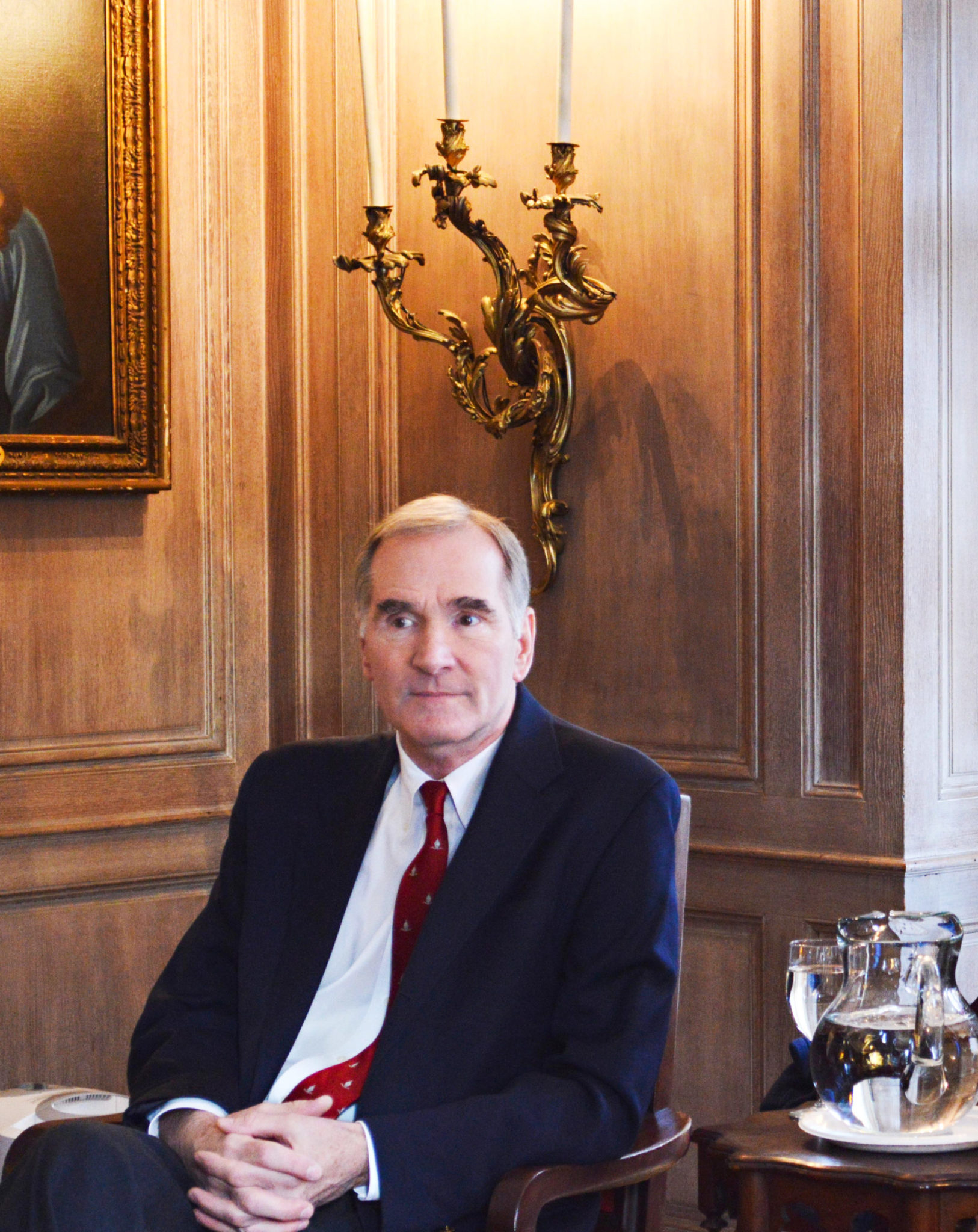
Yale Daily News
Yale’s Chief Investment Officer David Swensen has publicly instructed the firms who manage the University’s endowment to diversify their ranks — or risk Yale pulling its money from them.
Swensen’s Oct. 2 letter — which went public on Oct. 23 — went to the roughly 70 U.S. firms the University retains to manage its endowment. In the letter, Swensen asked firm managers to take a “more systematic approach” to diversifying the membership of their companies, adding that the Yale Investments Office would do the same. In a Friday article in the Wall Street Journal, Swensen said he was moved to write the letter after closely following this summer’s Black Lives Matter protests against continued police brutality.
“I write now to enlist your cooperation in taking a more systematic approach to the problem of the lack of women and minorities in the asset management industry,” Swensen’s letter reads. “Genuine diversity remains elusive, giving investors like Yale and your firm an opportunity to drive change.”
Asset management has traditionally been a male-dominated field. A Knight Foundation study found that in 2017, women- and minority-owned firms accounted for only about 1 percent of assets under management, even though the firms performed as well as less diverse firms.
According to investment executive recruiter Charles Skorina, there’s a “Catch-22” — because so few Black people have been given an opportunity in the industry, they may not have the necessary track record for CIOs to trust them to generate strong returns.
Skorina said that having role models is one of the most important factors in getting people into the business.
Gerald Jaynes, a professor in the economics and African American studies departments, said that “you have to see people who make you believe that you can achieve as they did.”
Jaynes also explained the lack of diversity in asset management by noting that the industry has recruited from the same networks for decades. According to Jaynes, many schools historically frequented by recruiters were male-only and predominantly white.
The networks and customs have maintained themselves, Jaynes said. Skorina agreed, saying that because asset management is a white male-dominated industry, young white male professionals have greater access to networking opportunities.
“Why are there so many white boys? Because white boys network,” Skorina said. “How many Black people are invited to play squash?”
The University expects responses from its managers by the end of the month, Swensen wrote in an email to the News. According to Swensen’s letter, Yale asked the firms to complete a survey detailing the number of “diverse professionals” at various ranks in their workforces, and the YIO plans to assess these firms’ progress in “hiring, training, mentoring and retaining women and minority” managers.
Each year, the University plans to survey the firms to track their progress. Though Swensen did not set specific benchmarks, the University could pull its money from firms that do not make change, the Wall Street Journal reported. Yale’s Investments Office will also seek to diversify its staff, Swensen wrote in the letter, though the Office declined to provide specific details or a timeline.
“We’re focused on improving diversity of the investment team at Yale and at our outside managers,” Swensen wrote in an email to the News.
Currently, the Yale Investments Office team is composed primarily of white directors.
Swensen’s letter comes amid mounting pressure from University boards for chief investment officers to put money with more diverse firms, Skorina said.
However, he added that the highest pressure on CIOs is to generate strong returns. CIOs may be concerned whether the boards will back them if they invest in less well-established firms with more diverse staff but ultimately lose money.
Swensen revolutionized the field of endowment management — he created the popular Yale model for endowment management and tutored a number of protégés who now manage endowments for other elite universities. Given Swensen’s stature in the industry, his letter will make news, Skorina said.
“People will take note,” Skorina told the News. “They will read his letter, and that in and of itself is good.”
But according to Skorina, Swensen’s threat to pull money from firms that do not diversify may only affect start-up managers or managers who are struggling. Skorina said that if a firm is having strong returns, they don’t need the University’s money.
On the other hand, Tristan Botelho, a professor at the School of Management, said that having a staff of diverse professionals may help a firm generate better returns. Managers need diversity of thought, he said.
“Diversity will contribute to a more robust and well-rounded conversation,” Botelho wrote in an email to the News. “This will be helpful because commonly held assumptions can be challenged and rethought. Also, a greater variety of opportunities can be identified for consideration.”
Jaynes explained that as long as firms continue to recruit from the same networks, they will be hiring people who have been trained to look at situations in the same way. True innovation requires diversity of perspective, he said.
In the letter, Swensen warned against poaching professionals from other firms. The “zero-sum game,” as he called it, will not make the field more diverse. Swensen noted that through past discussions on the topic, he has detected interest in diversifying the industry but claims that the recruiting pool is still not diverse.
He suggested that firms hire directly from college campuses, which are “richly diverse.”
Swensen also hopes that the number of diverse professionals will increase at all levels — not just at the ownership level — in order to make broader change.
“In short, ownership says nothing about staffing,” Swensen wrote in an email to the News. “A diverse owned firm could have a staff that is not diverse. A non-diverse owned firm could have a staff that is diverse.”
Yale’s endowment is valued at $31.2 billion.
Rose Horowitch | rose.horowitch@yale.edu







